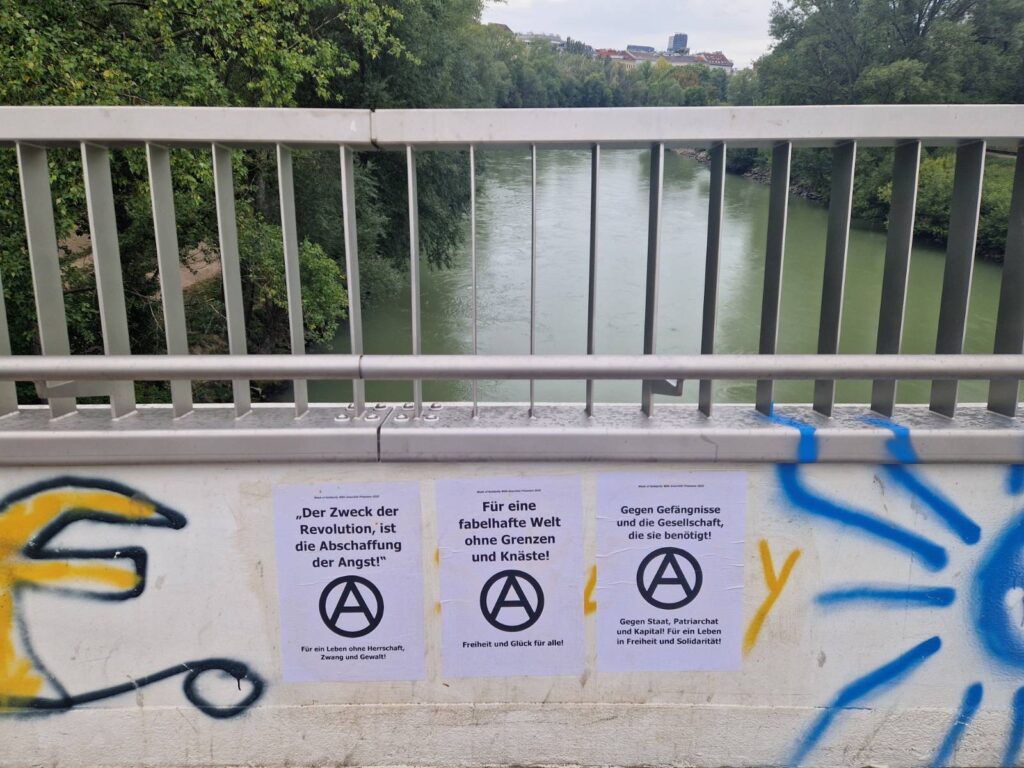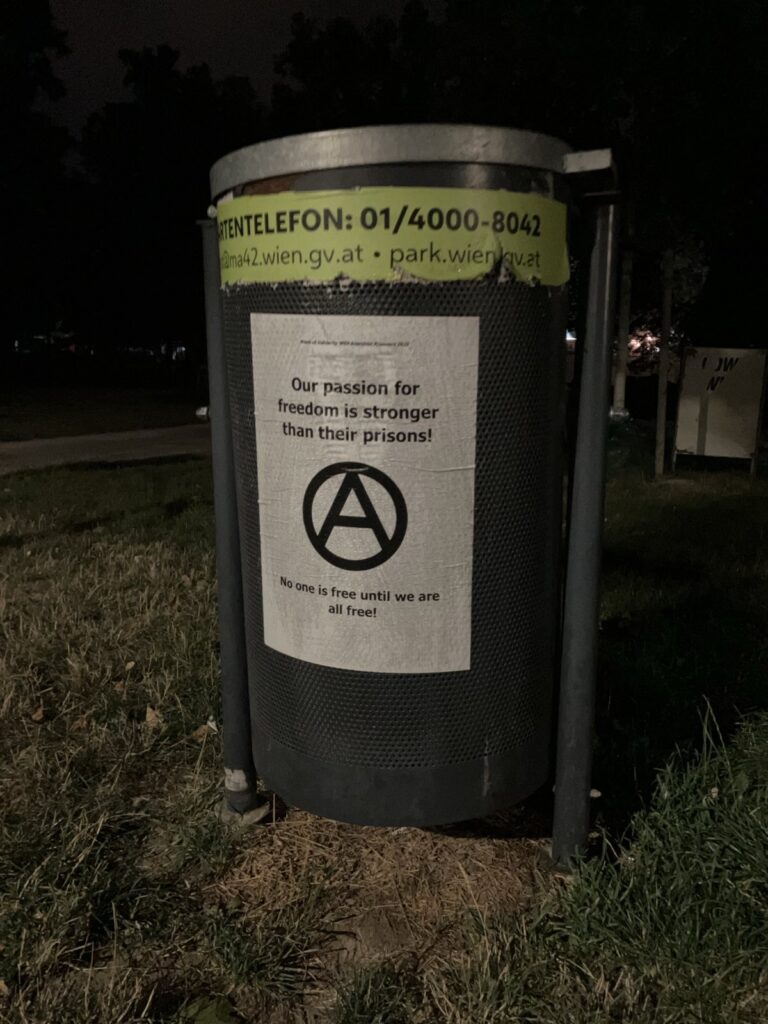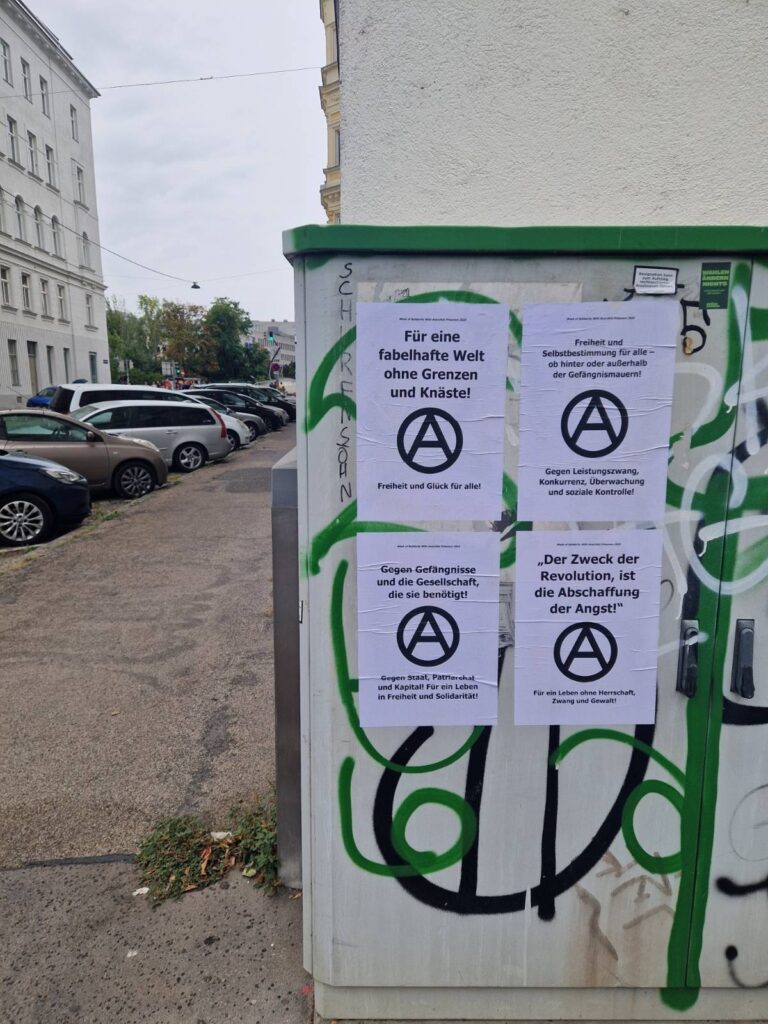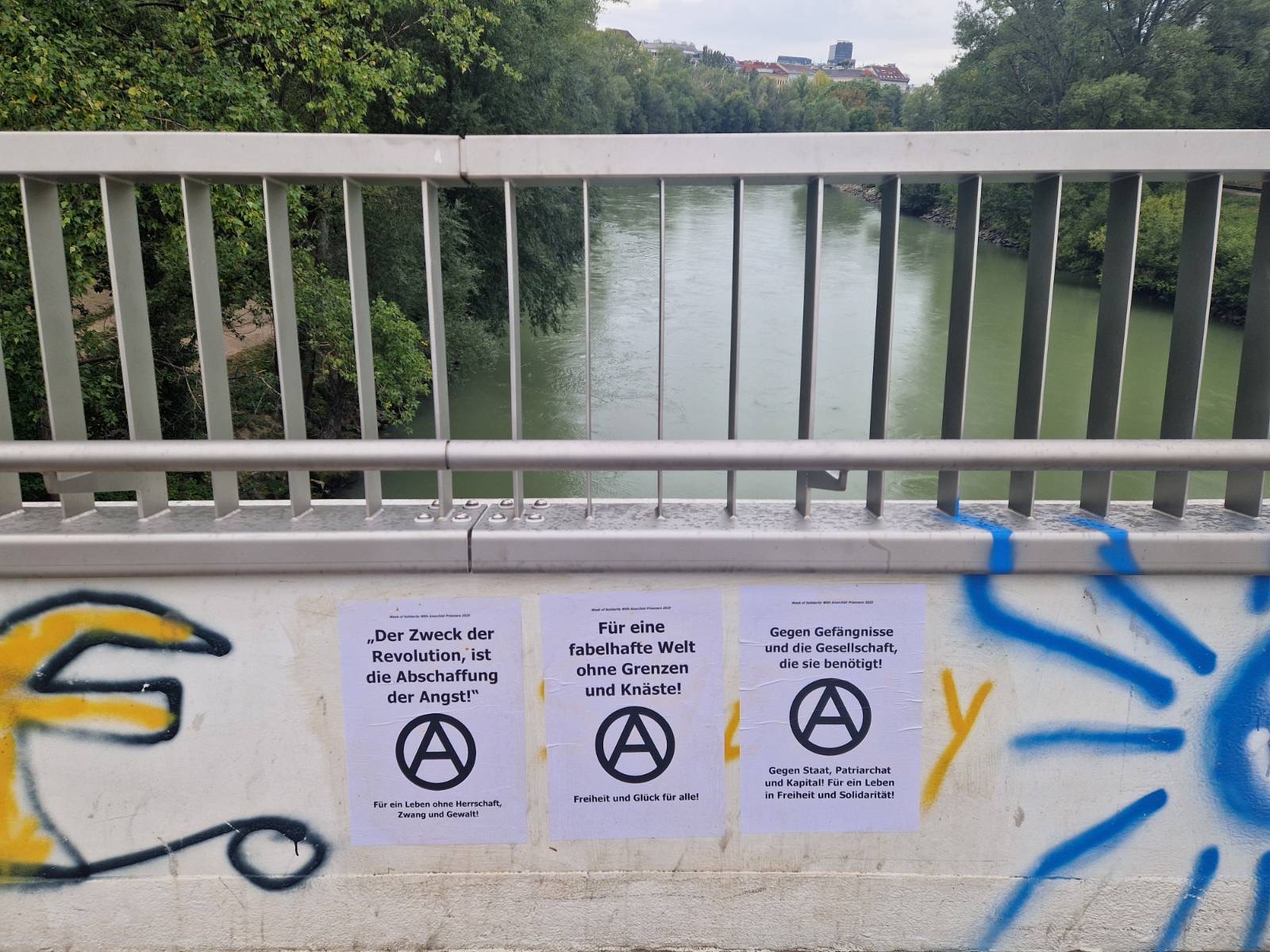


Text for the poster campaign as part of the International Week of
Solidarity with Anarchist Prisoners in Vienna
Prisons are institutions of violence. Anyone who has ever been locked away behind the thick concrete walls knows the violence inflicted on people there—and how many lives are broken by it. In Austrian prisons too, the suicide rate has been rising for years. Contrary to widespread belief, the majority of people imprisoned there are not locked up because they pose an immediate danger to others. Most of them have been convicted of property-related offenses or violations of the narcotics law—that is, for transgressing the prevailing property order and bourgeois norms. This logic of punishment itself creates crime and exacerbates social problems, while leaving the underlying social causes
untouched.
But prison does not merely exist to lock people away. It also serves a function for those on the other side of the wall. Prison is meant to deter and discipline. It demonstrates what happens if you step out of line or fail to “belong”: the last fragments of freedom and self-determination that remain to us in this society full of constraints are stripped entirely from prisoners.
Prisons are a mirror of social reality. They are part of societal
ordering principles and serve to establish and enforce norms through control and discipline. This is evident not least in the fact that people affected by poverty and racism are disproportionately represented in prisons. For what or who is defined as “criminal” is socially constructed. In this process, certain acts are stigmatized, marginalized groups are targeted, subjected to increased control, and ultimately punished more harshly.
And prison makes clear what bourgeois society and its legal system are ultimately founded upon: violence and exclusion. Bourgeois law, under which everyone is formally equal, conceals its true character of domination precisely by doing so: that “under the majestic equality of the law, both rich and poor are forbidden to sleep under bridges, to beg in the streets, and to steal bread,” as the French writer Anatole France ironically wrote in 1919. In other words, formal equality before the law cements the material inequality of bourgeois, capitalist society. This system forces all those without sufficient property to drag themselves to wage labor every morning to carry out an externally imposed activity.
The empty gazes of office workers in the subway, the tired eyes of the cashier, or the broken back of the laborer show: violence is inflicted on people here, too.
In recent years we have witnessed how the contradictions of the
capitalist world order are intensifying and are increasingly being
handled in authoritarian ways. We see it in the rise of the far right,
just as in the ever more brutal enforcement of competition in times of capitalist crisis. Social safety nets are being dismantled while repression is being intensified. Deadly border regimes, prison-like camps, and deportations on the outside; cuts in social programs and the harassment of the poor and unemployed on the inside. The latter means nothing less than the comprehensive social control, surveillance, and disciplining of all those rendered economically “superfluous” and pushed to the margins. It is no coincidence that the Minister of the Interior speaks of expanding video surveillance in the same breath as “combating welfare fraud”: the screws are meant to be tightened, and those who
still refuse to comply end up in prison or on the street.
As part of the International Week of Solidarity with Anarchist Prisoners we want to express our solidarity with anarchist prisoners, but also to overcome the division between “political” and all other prisoners. What unites them is that they are locked up because of the existing conditions. Processes of social division should not be reproduced here, but rather overcome in a common struggle for a good life for all.
As anarchists, we want a society without prisons or any other
institutions of confinement. We do not demand better prison conditions! A society that depends on letting people rot behind bars cannot be reformed—it can only be abolished!
We want a society without property, without borders, without domination of people over people, without sexism, without homophobia, without racism, without antisemitism, and without all other mechanisms of oppression—and therefore also without prisons!
For a life without domination, coercion, and violence!
Against prisons and the society that requires them!
Against state, patriarchy, and capital!
For a life in freedom and solidarity!
More Information
